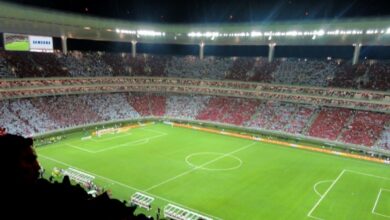Abstention: another problem for Venezuela
Listen this article
The past elections do not leave a very encouraging picture since the abstention rate was one of the highest. For what is this?

A week after the council elections in Venezuela, the outlook does not seem to have changed. According to the official report of the National Council, the Socialist Party of Venezuela obtained 142 available positions in adjudicated list positions and 449 positions in nominal positions available. The result? More than 90% of the legislative chambers are in charge of the party of Nicolás Maduro.
Leer en español: Abstención: otro problema para Venezuela
But why is this happening in a country that is going through one of the worst crises in its history? Well, one of the main factors lies in the fact that the elections presented a 27% participation, which represents a 72% abstention in the past votes.
That high figure represents the fear and despair that Venezuelans feel for the government that constantly feels a delirium of persecution, claiming that they are always looking for a way to overthrow it. There is no doubt that the low participation comes from the discontent and distrust of the Venezuelan people.
The manipulation of the government before the results of the elections; the censorship and the disqualification so that the opposition parties can go up and be part of the judicial and legislative branch; added to the crisis that every day worsens and that according to the IMF in 2019 will come with an inflation of 10,000,000, represent some important reasons.
However, it seems that the Chavez formula of pressing his followers will not work. That 72% not only represents the Venezuelan opposition but also the Chavistas, who seem to wake up and who little by little begin to notice that the shortage of food, basic supplies, medicines or long lines to get them is not a normal situation of a country that previously lived in glory.
Also read: Venezuela promotes terrorism
On the other hand, it is not easy for the opposition either. This year, I daresay, it was one of his most critical years. They have been trying to lose power to Chavismo for more than 10 years and they have not given it a convincing blow. Even less has served them, the Democratic Unity Table, a coalition of political parties that represent the opposition, but that does not seem to be on track.
It is not an easy year for Venezuelans, who have to choose between an authoritarian party that gives them more misfortunes than graces, or a weak, flagellated opposition that seems to have neither a clear direction nor strength. Now, it seems that international organizations such as the OAS and the European Union or countries like the United States were truly the opposition. They are the ones who reject the elections, criticize the government, denounce the violation of human rights.
That Maduro listens to them or pays attention to them, is another thing. But what is certain is that, perhaps, the accusations and accusations against politicians in favor of Chavismo are a way to open our eyes and open the way to a democratic Venezuela, so the next elections to be held on the number of participants exceeds that of abstention.
LatinAmerican Post | Laura Viviana Guevara Muñoz
* The opinion of the writer does not represent the media





